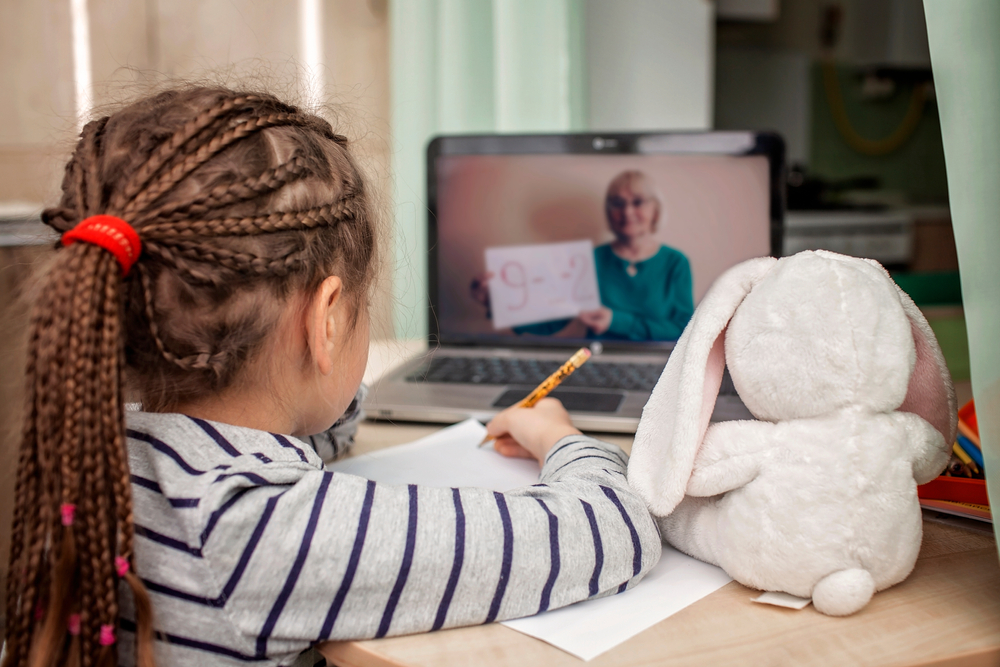Observational skills Worksheets for Ages 6-9
27 filtered results
-
From - To
Enhance your child's observational skills with our engaging worksheets designed specifically for ages 6-9. These printable activities encourage young learners to sharpen their attention to detail and critical thinking abilities through fun and interactive exercises. By focusing on picture analysis, pattern recognition, and comparative observation, these worksheets make learning enjoyable while developing essential cognitive skills. Perfect for use in the classroom or at home, our resources aim to foster curiosity and mindfulness in observation. Help your child become a keen observer and strengthen their learning foundation with our thoughtfully crafted worksheets today! Suitable for diverse learning styles and abilities.
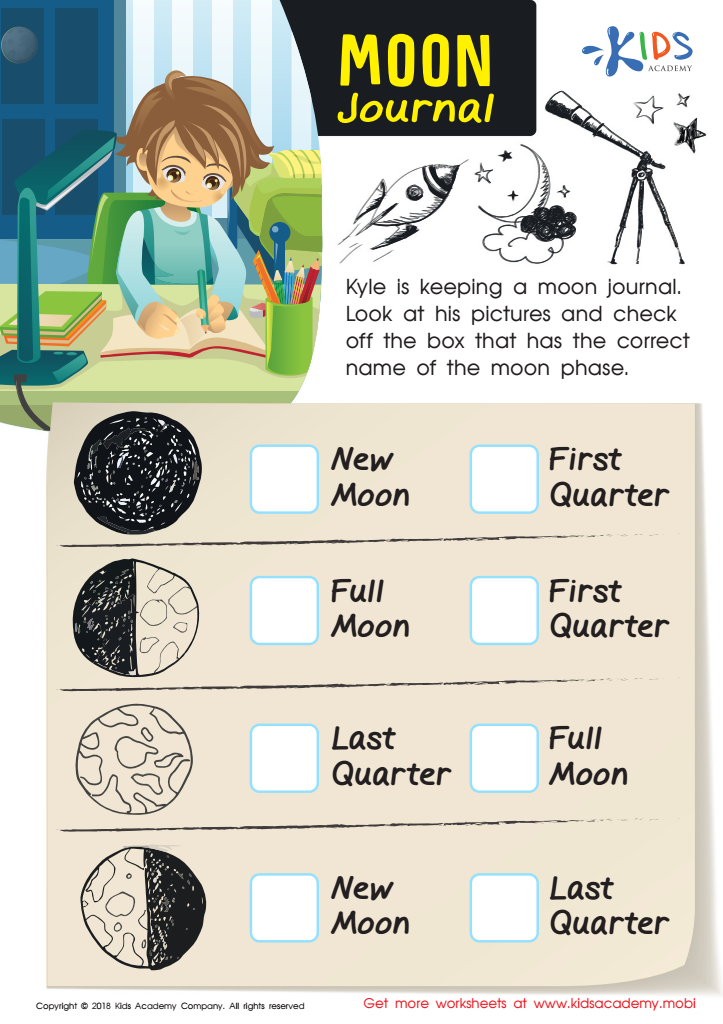

Moon Journal Worksheet
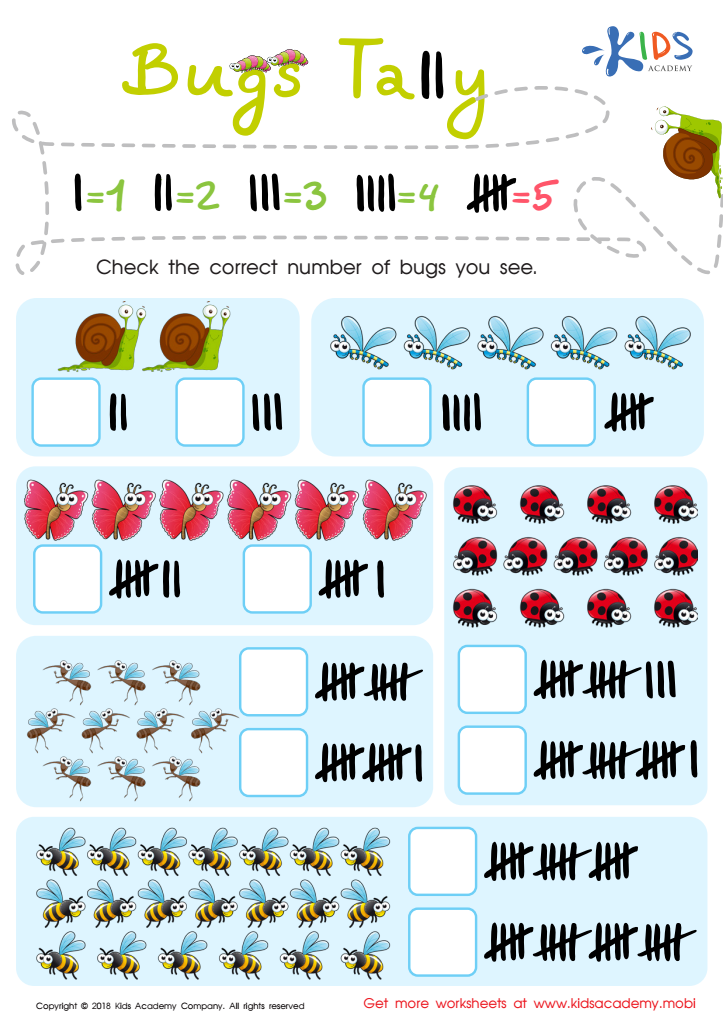

Bugs Tally Worksheet
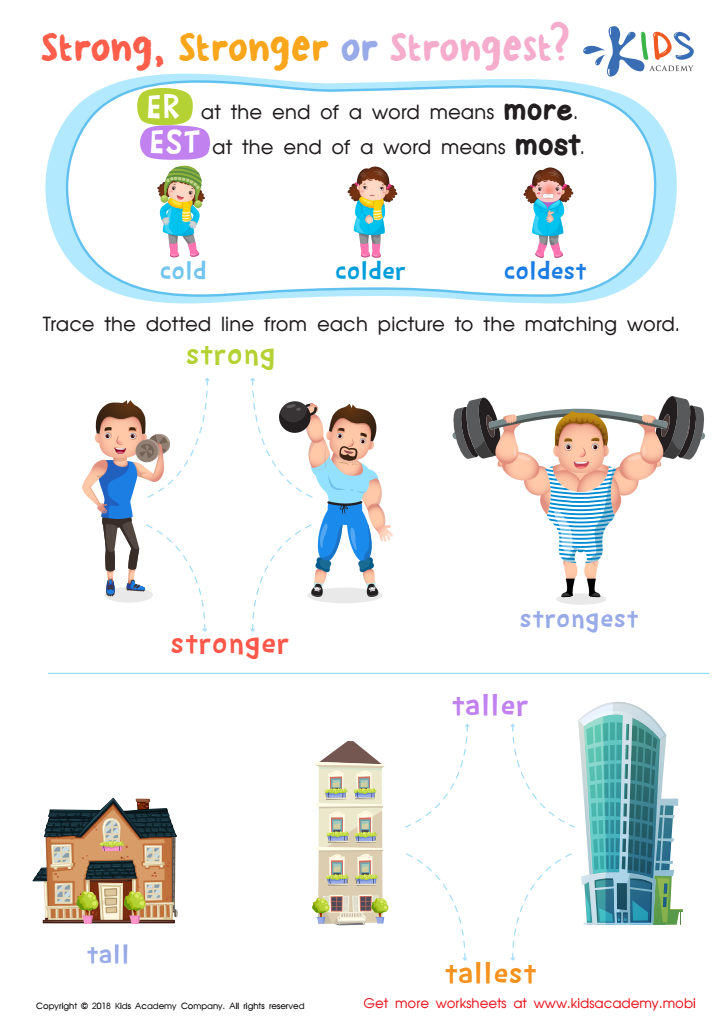

Strong or Stronger? Worksheet
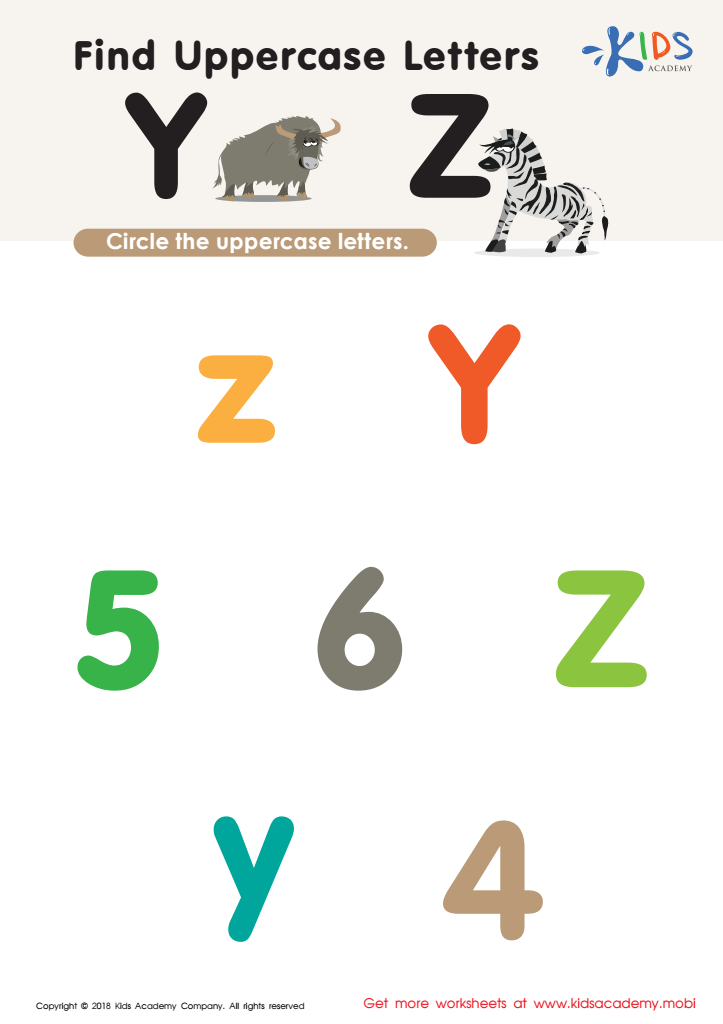

Find Uppercase Letters Y Z Worksheet
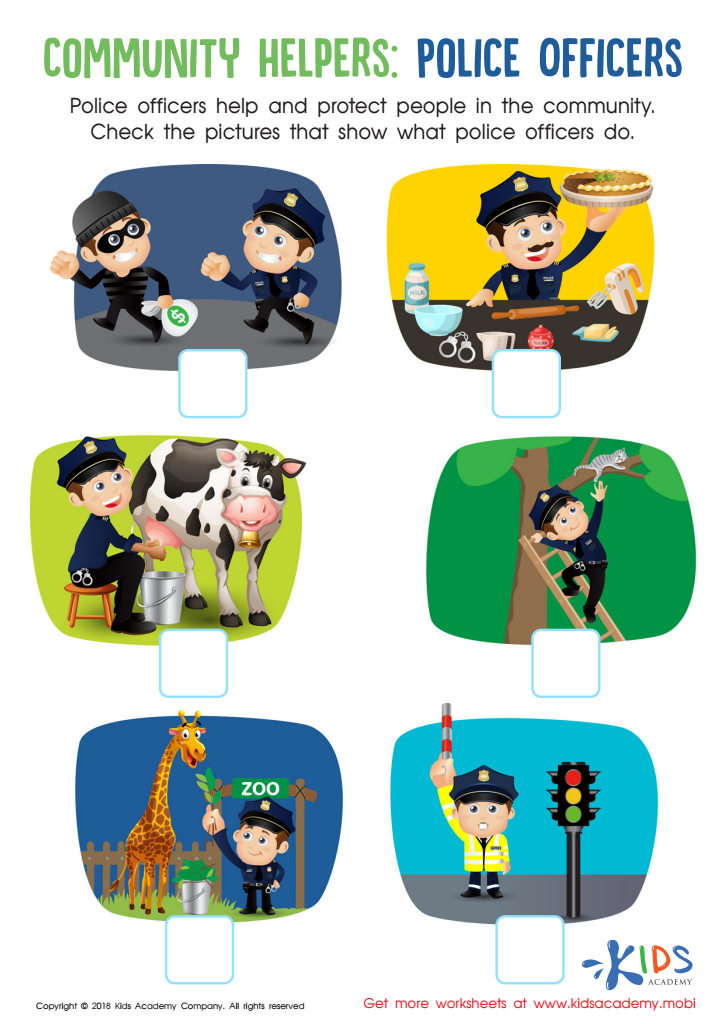

Police Officers Community Helpers Worksheet
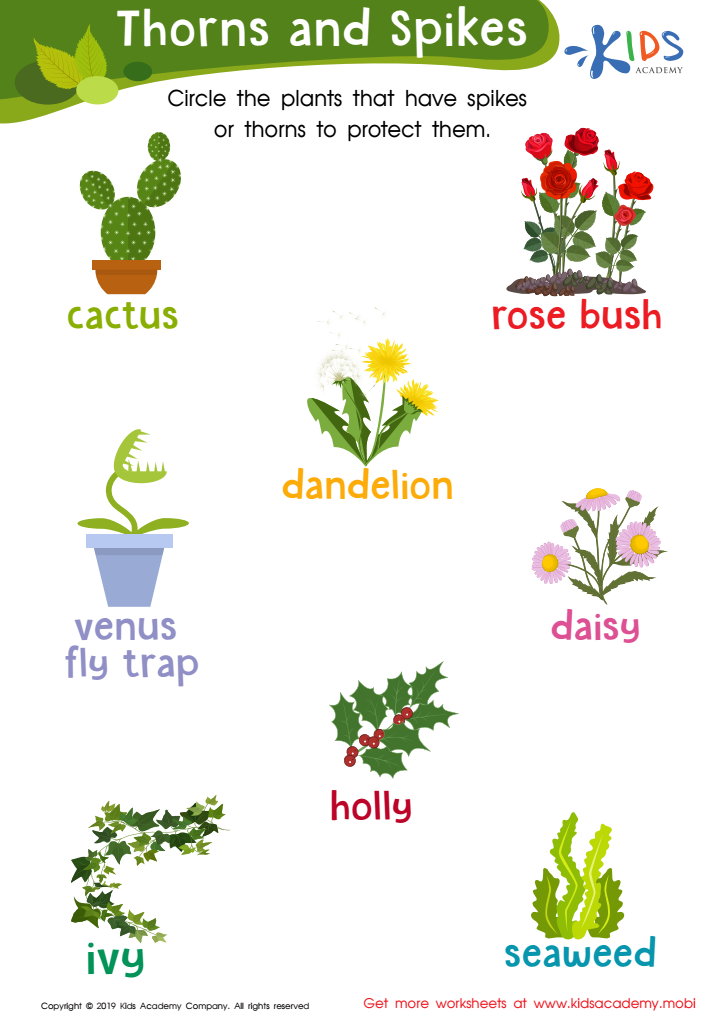

Thorns and Spikes Worksheet
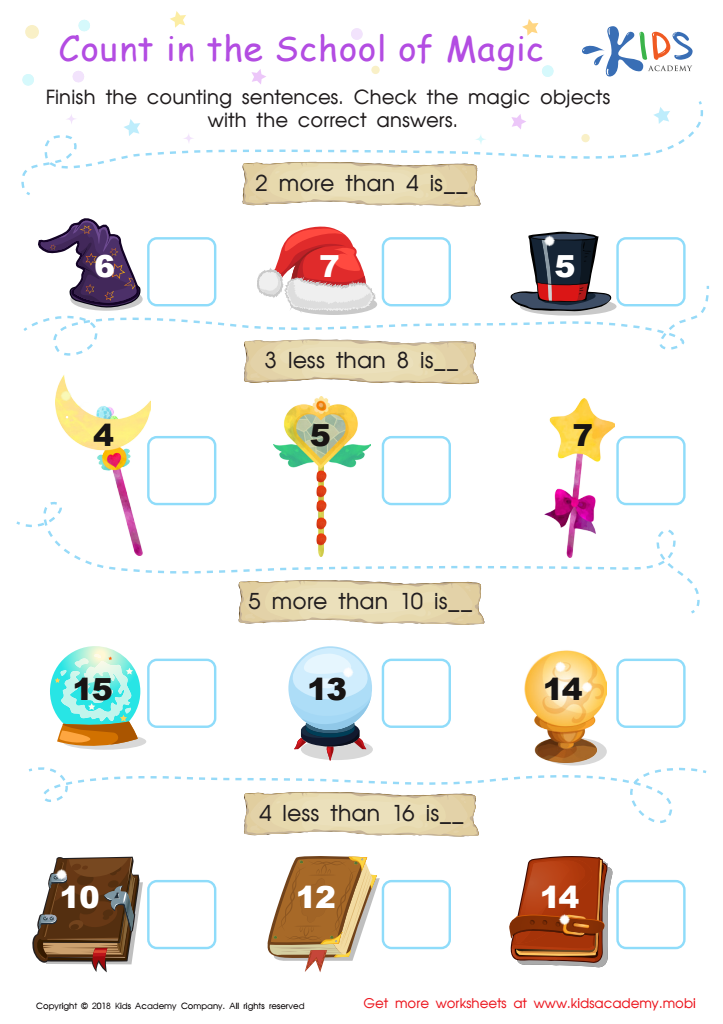

Count in the School of Magic Worksheet


Party Arrays Worksheet
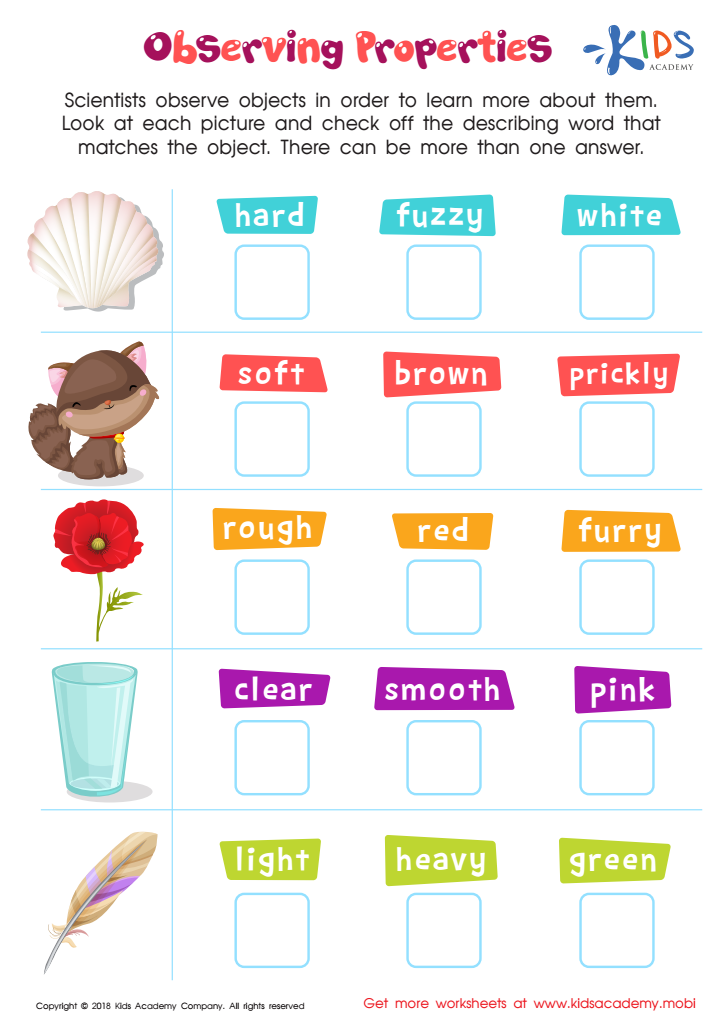

Observing Properties Worksheet
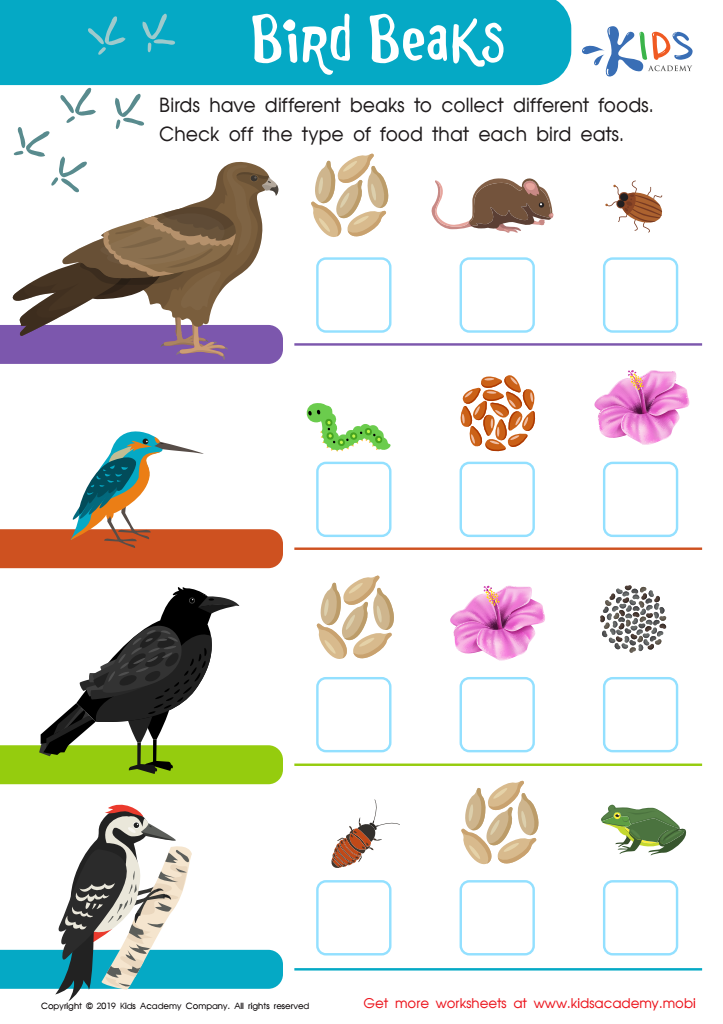

Bird Beaks Worksheet
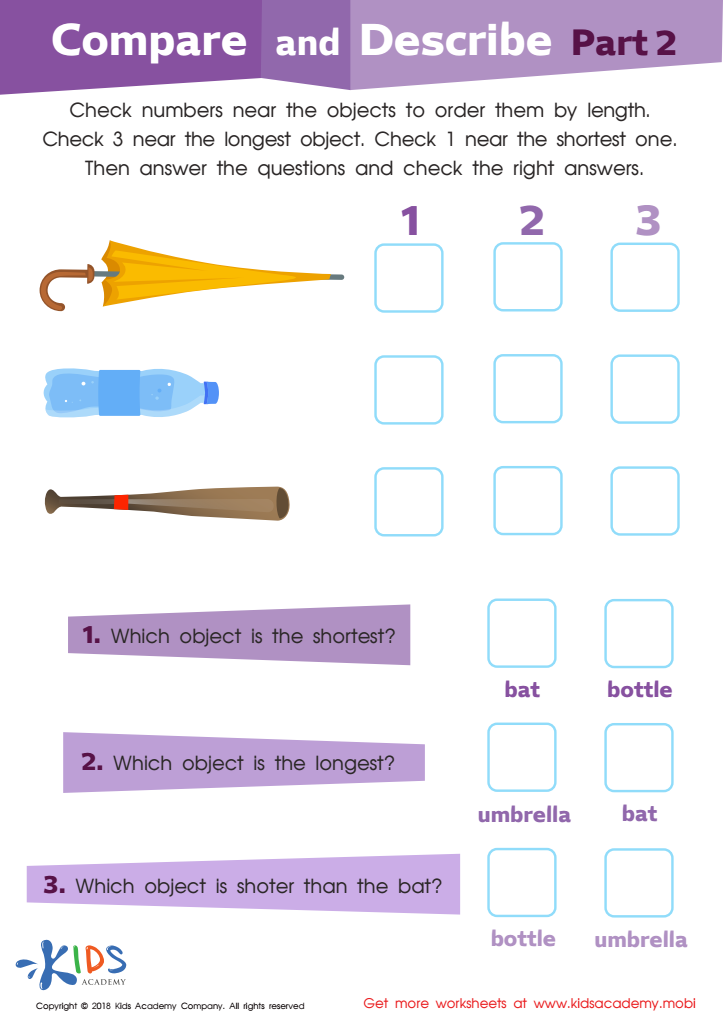

Compare and Describe: Part 2 Worksheet


Count Santa's Presents Worksheet
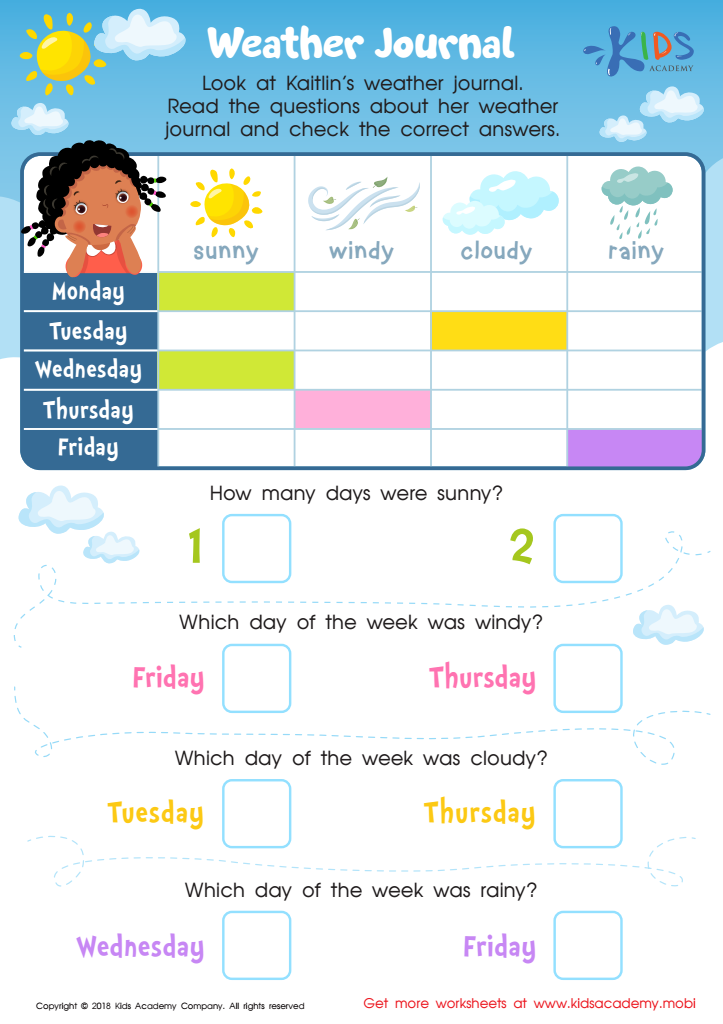

Weather Journal Worksheet
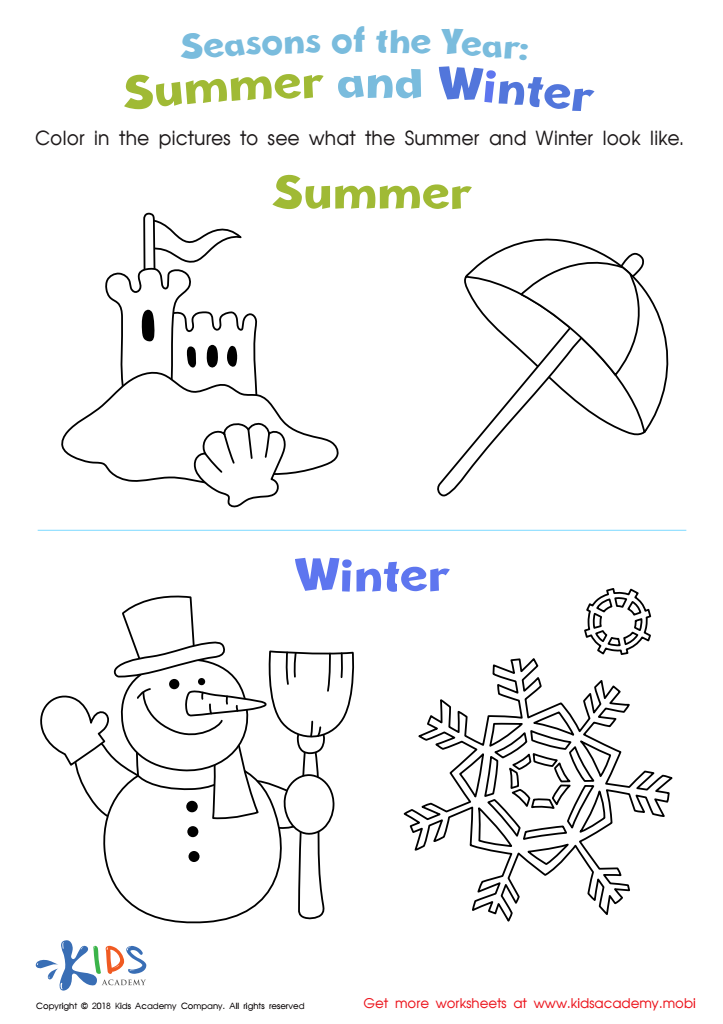

Summer and Winter Worksheet
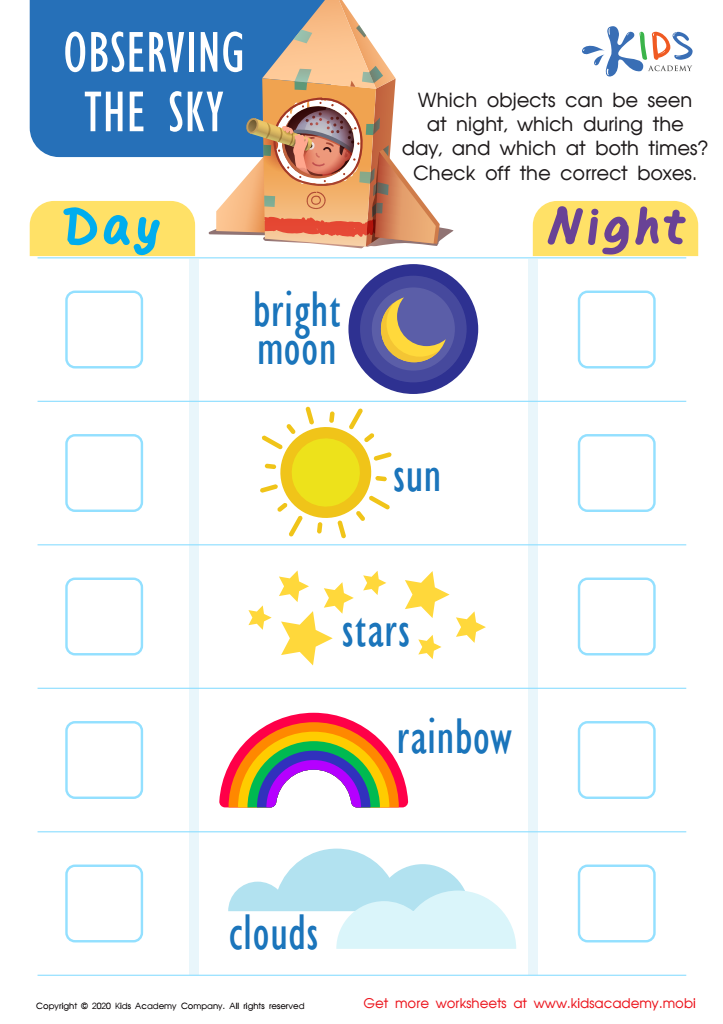

Observing the Sky Worksheet
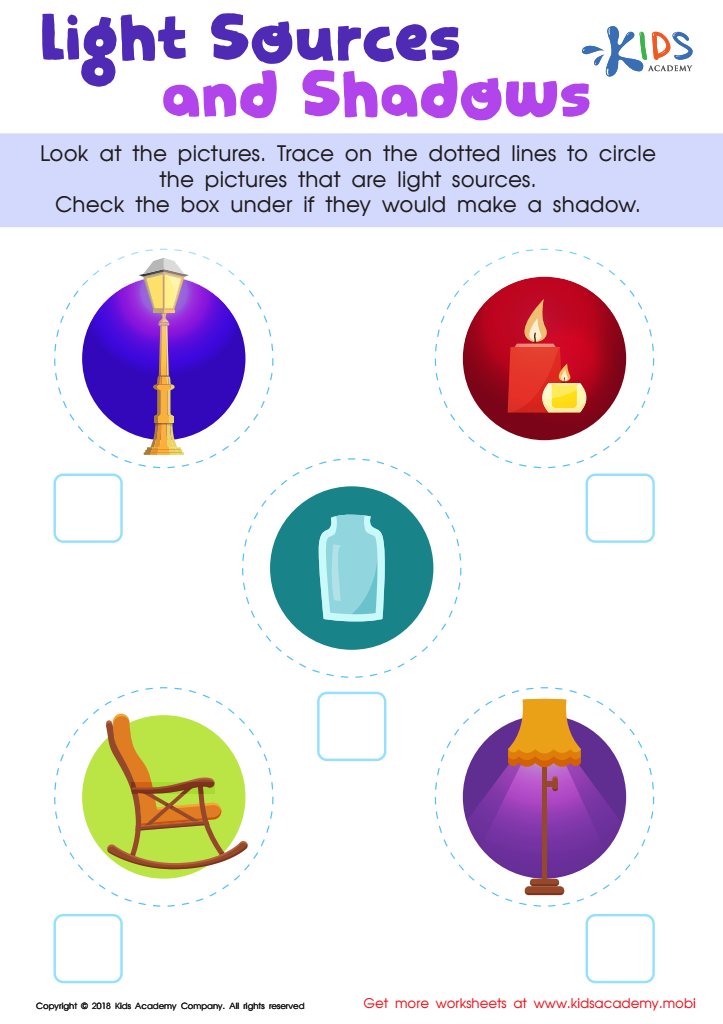

Light Sources and Shadows Worksheet
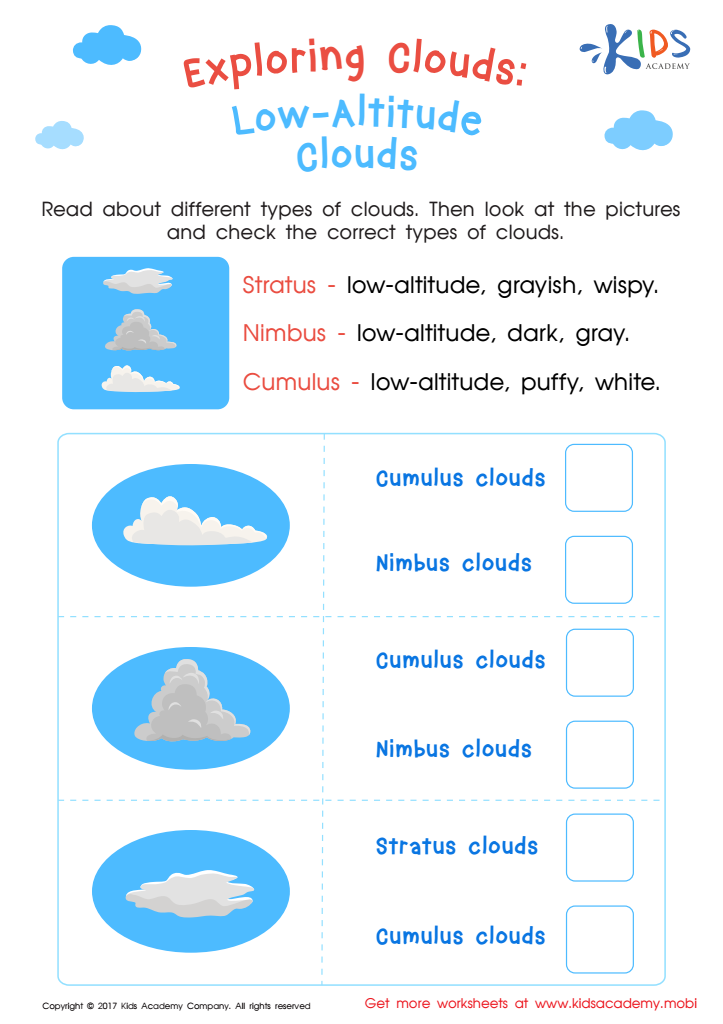

Exploring Clouds: Low Altitude Clouds Printable
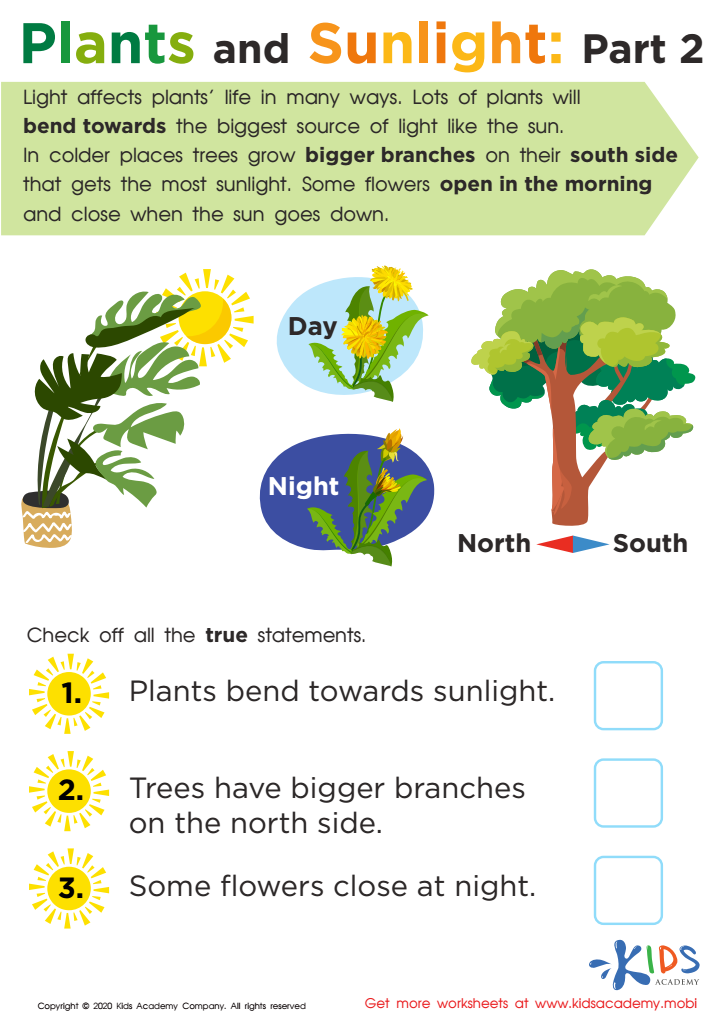

Plants and Sunlight: Part 2 Worksheet
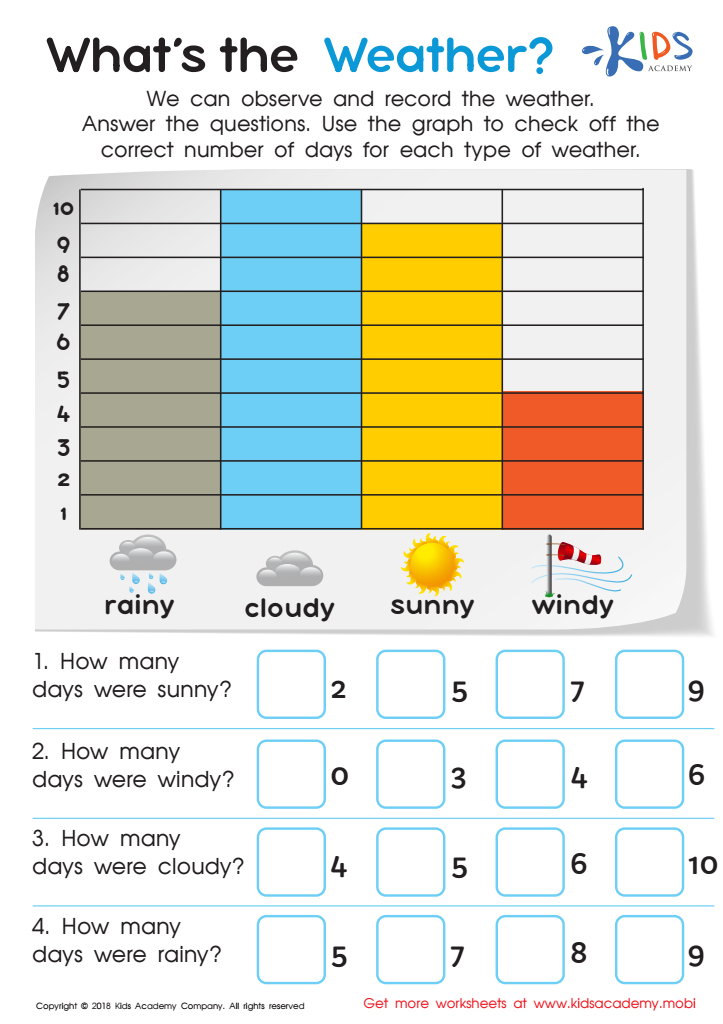

What's the Weather? Worksheet
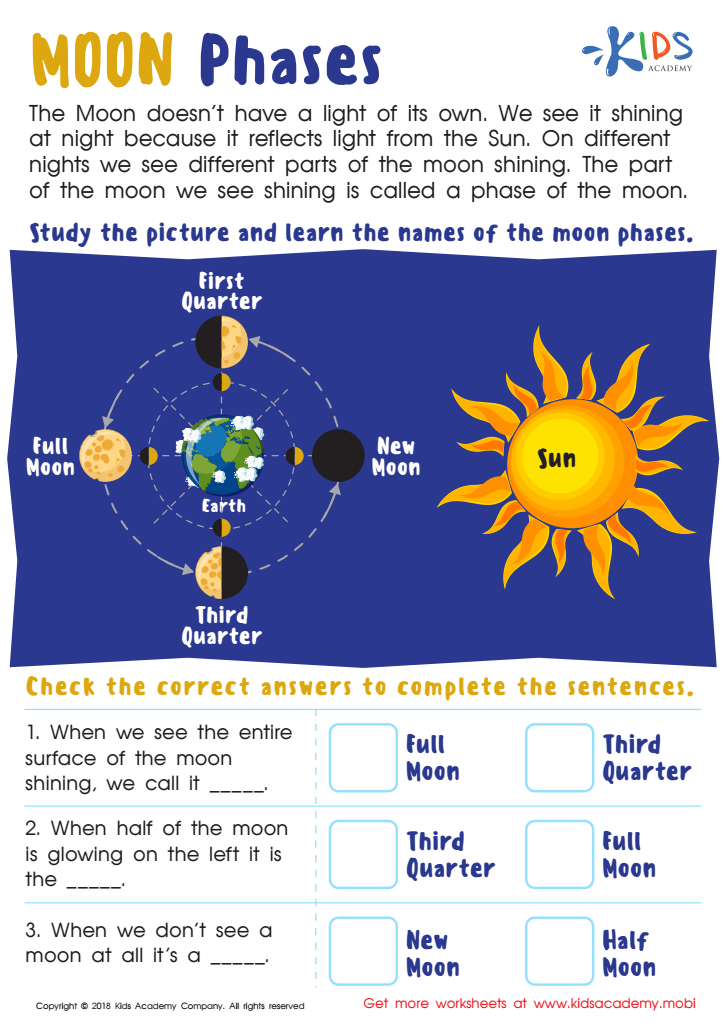

Moon Phases Worksheet
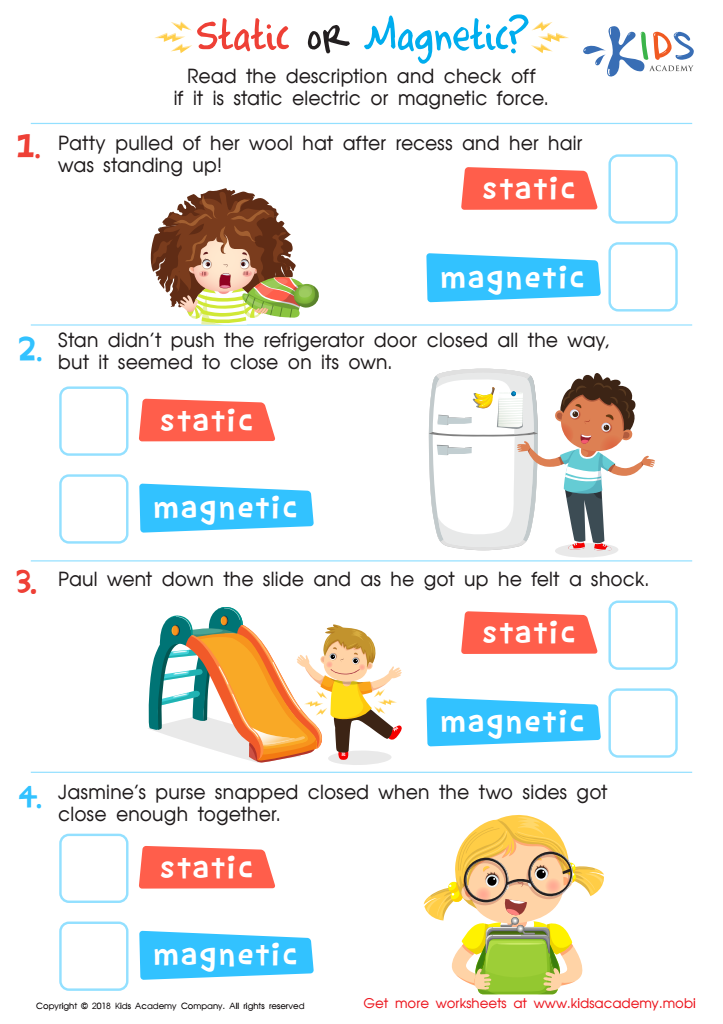

Static or Magnetic Printable Worksheet
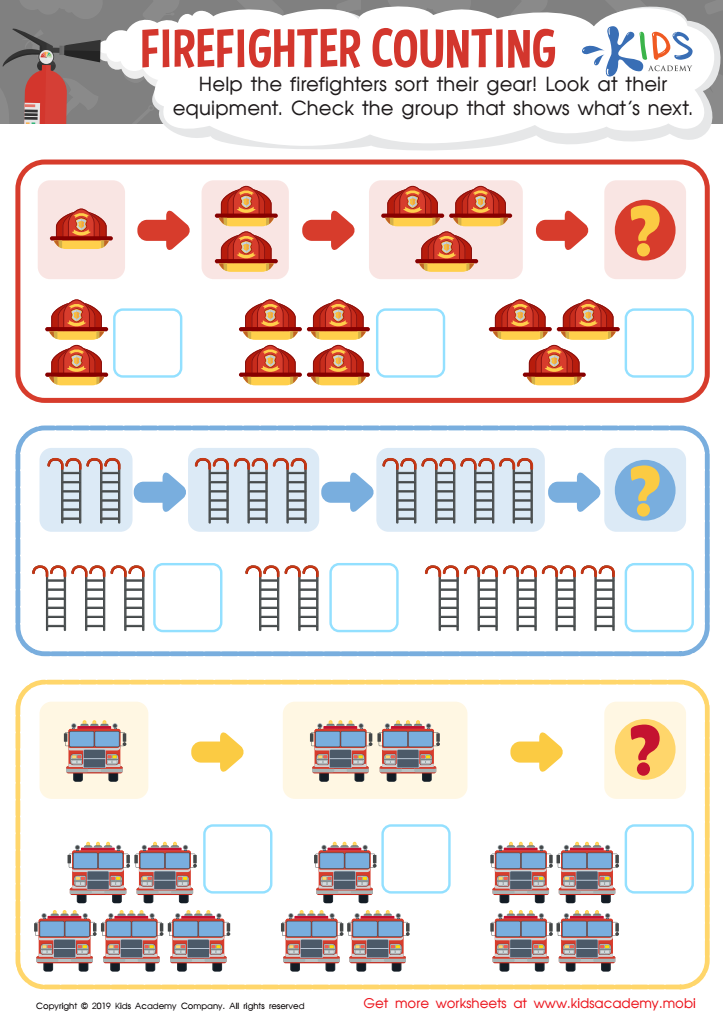

Firefighter Counting Worksheet
Observational skills are crucial for children aged 6-9 as they serve as a foundation for cognitive development and learning. During this stage, children are naturally curious and eager to explore their surroundings. By honing their observational skills, parents and teachers can help them make sense of the world around them, leading to enhanced critical thinking and problem-solving abilities.
For educators, fostering these skills in the classroom encourages active engagement and participation. When children learn to observe carefully, they become better equipped to analyze their environment, recognize patterns, and draw conclusions. This skill is vital not only in science and mathematics but also in reading comprehension, as they learn to interpret textual clues and contextual cues.
Parents should also value observational skills because they promote emotional intelligence. When children practice observing social interactions, they learn to empathize with others and understand diverse perspectives. This contributes to better communication and relationship-building skills.
Ultimately, by supporting the development of observational skills, both parents and teachers contribute to creating well-rounded, curious, and thoughtful individuals who are capable of navigating the complexities of life both academically and socially. Investing in these skills now lays the groundwork for lifelong learning and adaptability.

 Assign to My Students
Assign to My Students








